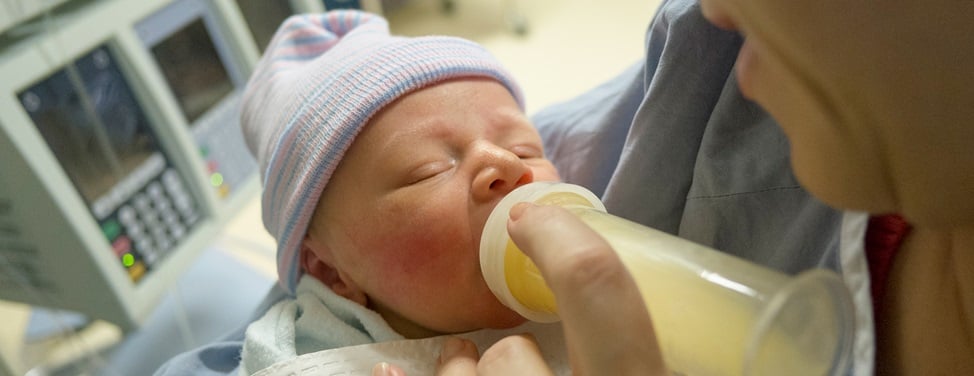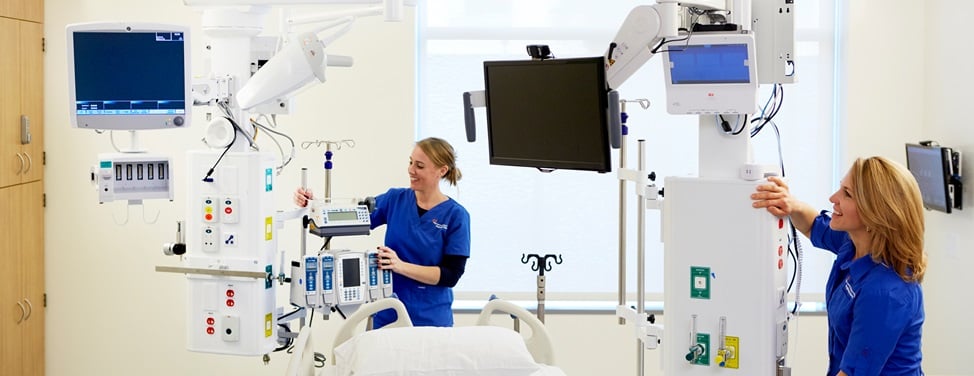When babies are born prematurely, their digestive systems may not be fully developed. As a result, many of these small infants experience feeding difficulties such as:
- Problems establishing nipple feedings, at breast or with the bottle. This may occur because the infant can't suck and swallow properly.
- Gastric residuals, which occurs when babies don't completely empty their stomachs from a previous feeding.
- Gastroesophageal reflux, which occurs when a small amount of stomach contents, including stomach acid, refluxes or regurgitates into the esophagus. This can be painful to the infant and, when severe, may cause signs of distress such as apnea, a condition in which a baby temporarily stops breathing.
- Abdominal distension, which is an abnormal enlargement or swelling of the stomach. This distension may be a sign of more severe gastrointestinal problems.
Feeding is given special attention in the Intensive Care Nursery at UCSF Benioff Children's Hospital. Babies born before weeks 32 to 34 of pregnancy usually can't nurse or drink normally from a bottle. Instead, these babies receive nutrients by gavage feedings, in which a tube is placed through their mouth or nose into their stomach.
Although many premature babies can't breastfeed because they can't coordinate sucking, swallowing and breathing, mothers can still pump breast milk; the staff of the Intensive Care Nursery will store it and feed it to your baby by gavage feedings.
In almost all infants, feeding difficulties are temporary and resolve as the baby matures and gets closer to the full-term due date. However, some infants may suffer from more severe feeding problems that can lead to other conditions, such as necrotizing enterocolitis, or NEC. As a serious problem of the intestines, NEC affects a very small percentage of extremely premature babies and may require temporary stopping intestinal feedings, treatment with antibiotics and, in severe cases, surgery.
Experts at UCSF Benioff Children's Hospital care for sick infants in the William H. Tooley Intensive Care Nursery.

































